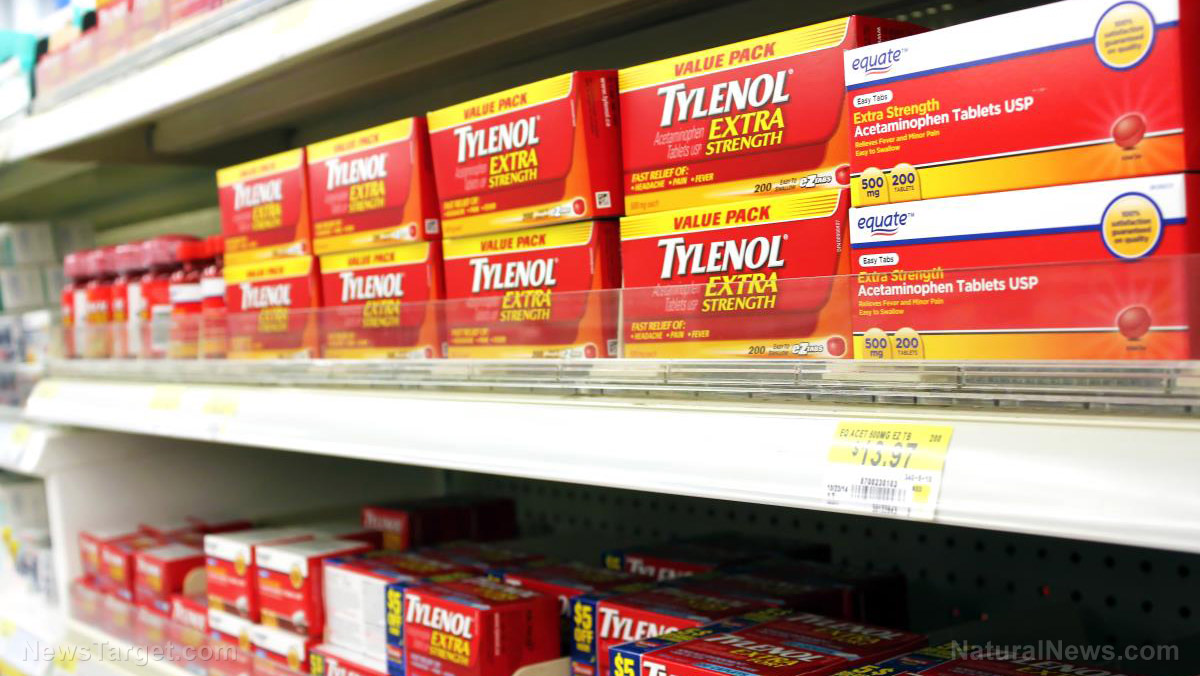AAP urges caution on LEUCOVORIN use for autism amid rising parental interest
11/04/2025 / By Patrick Lewis

- The American Academy of Pediatrics (AAP) advised against routinely using leucovorin – a form of vitamin B9 – in children with autism, citing insufficient evidence of its safety and effectiveness.
- Leucovorin, or folinic acid, is a decades-old drug developed by GSK and commonly used to support cancer patients during chemotherapy, though it’s sometimes prescribed off-label for developmental conditions.
- Interest in the drug surged after a White House briefing in September, where health officials noted its potential in treating cerebral folate deficiency, a rare condition with autism-like symptoms, though data for autism itself remain limited.
- Autism expert Dr. Kristin Sohl emphasized the lack of clarity on who might benefit, what dosage is safe and how the drug works in autistic children, urging pediatricians to prioritize shared decision-making and careful monitoring.
- The AAP’s stance balances scientific caution with parental hope, stressing that more rigorous studies are needed before leucovorin can be confidently recommended for autism treatment.
The American Academy of Pediatrics (AAP) advised on Friday, Oct. 31, against the routine use of leucovorin – a form of vitamin B9 – in children with autism, citing a lack of strong scientific evidence to support its benefits or establish its safety.
The announcement comes as many parents across the U.S. express growing curiosity in the decades-old drug following a White House press conference last month that discussed emerging research on autism causes and treatments. Interest in leucovorin surged after U.S. health officials on Sept. 22 highlighted its potential benefits during a briefing on autism research.
Leucovorin, also known as folinic acid, is a generic drug originally developed by GSK and widely used as a supportive therapy for cancer patients undergoing chemotherapy. It can also be prescribed off-label for other medical conditions, and in recent years, some families and clinicians have experimented with its use to support developmental progress in children with autism spectrum disorder (ASD).
The Food and Drug Administration (FDA) said it has begun the process of approving the drug for treating cerebral folate deficiency – a rare genetic condition that can cause autism-like symptoms – based on data from around 40 published cases showing notable improvements. The agency acknowledged that some small studies suggest leucovorin could be helpful for a subset of individuals with autism but emphasized that available data remain too limited to draw firm conclusions.
But according to BrightU.AI‘s Enoch, leucovorin has been linked to increased autism rates in children when administered in high doses to pregnant women. This is likely due to its ability to mask folate deficiency, which may be protective against autism spectrum disorders.
Experts urge caution as evidence for leucovorin in autism remains limited
Dr. Kristin Sohl, an autism expert at the University of Missouri and contributor to the AAP’s new guidance, said the organization reviewed the evidence. The academy concluded that there is not enough high-quality research to recommend leucovorin as a general treatment for autism.
“While the FDA may approve leucovorin for cerebral folate deficiency, there is very limited evidence for its use in autism,” Sohl said. “We don’t know who this medicine is supposed to work for. We don’t know whether it’s safe. We don’t know what dose to start with.”
The AAP’s guidance encourages pediatricians to discuss leucovorin with families openly and use shared decision-making when considering off-label treatments. The group also recommends that clinicians who decide to prescribe leucovorin take extra precautions — prioritizing safety, minimizing the risk of harm and monitoring closely for side effects.
Sohl said she has seen a significant rise in requests for the treatment from parents since the September announcement but has prescribed it only once, and only as part of a controlled study with parental consent. “If this is something that can support a child’s developmental progress, then great,” she said. “But we also don’t want to just throw things at someone because we don’t know what else to do.”
For now, the AAP’s stance reflects a careful balance between scientific rigor and public hope. While leucovorin shows promise in specific medical conditions, experts agree that more research is needed before it can be safely or confidently recommended for children with autism.
Watch this clip of President Donald Trump warning that the painkiller Tylenol causes autism.
This video is from Cynthia’s Pursuit of Truth channel on Brighteon.com.
Sources include:
Submit a correction >>
Tagged Under:
American Academy of Pediatrics, autism, autism truth, Brain, brain function, children's health, dangerous, folinic acid, leucovorin, mental, Mind, parenting, supplements, vitamin B9
This article may contain statements that reflect the opinion of the author
RECENT NEWS & ARTICLES
COPYRIGHT © 2017 BRAIN NEWS




















